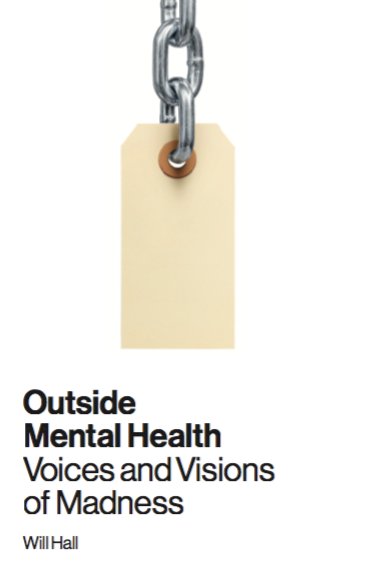Front Page Local Coverage of Lilly Gag Order on Will Hall
The Hampshire Daily Gazette just published front-page story, with a photo, about Will Hall receiving an Eli-Lilly gag order after documents about blockbuster schizophrenia drug Zyprexa were leaked anonymously to the internet. The documents are a smoking gun of criminal fraud and illegal marketing.
The Hampshire Daily Gazette just published front-page story, with a photo, about Will Hall receiving an Eli-Lilly gag order after documents about blockbuster schizophrenia drug Zyprexa were leaked anonymously to the internet. The documents are a smoking gun of criminal fraud and illegal marketing.
http://www.freedom-center.org/pdf/1-16-07ActivistGaggedLillyWillHallGazetteSCANNED.pdf
http://snipurl.com/Gazette1_16_07
Contact the Gazette thanking them for covering this issue and asking that the local angle — including forced drugging and resulting diabetes of Northampton residents — be examined.
_________________________________________________________________________
Activist gagged for drug fact leak in Lilly case
BY KIMBERLY ASHTON STAFF WRITER
NORTHAMPTON – A city man who co-founded a mental health advocacy group is among those drug giant Eli Lilly has sought to silence regarding documents leaked about Zyprexa, its bestselling drug for schizophrenia.
Will Hall, a member of the Freedom Center in Northampton – a group often critical of the pharmaceutical industry and that also offers support and holistic alternatives for people with mental illness – is one of 13 people named in a gag order pursued by Lilly.
The order was granted in a federal court in New York Dec. 29 and renewed on Jan. 4. It forbids Hall and others from disseminating or facilitating the dissemination of internal Lilly documents Hall and others say prove that the corporation suppressed information about the side effects of Zyprexa and promoted so-called ‘off-label’ use.
The documents were originally obtained via subpoena by Jim Gottstein, an Alaskan lawyer, as part of a lawsuit involving Zyprexa. Lilly alleges that Gottstein then disseminated the documents to a dozen mental-health activists who are critical of the drug industry, including Hall.
Hall, reached in Portland, Ore., Thursday, where he is working with another mental health advocacy group, said he has seen the documents, and they show that Lilly knew Zyprexa could cause diabetes and that the company pushed the use of the drug for dementia, although it is not approved for such use. Such marketing is illegal.
Lilly strongly denies the accusations. A spokeswoman for the company said questions about Zyprexa are answered at www.zyprexafacts.com. A Lilly press release on the site says media reports have omitted several facts about the drug.
‘From the day that Zyprexa was approved, the labeling provided to physicians identified the potentially clinically significant weight gain that was observed in more than half of all patients treated long-term with Zyprexa, as well as the diabetes-related adverse events observed in clinical trials,’ an online Lilly response states.
In an email response, the Lilly spokeswoman, Carole Puls, wrote, ‘The leaked documents – only a few hundred of the 11 million pages, so far as we can determine – have been carefully selected by the ‘leakers’ to tell a story that the ‘leakers’ want them to tell. These documents do not in any way represent an accurate view of Lilly company strategy or activities. What these individuals are not likely to show you is the millions of other pages of documents demonstrating how Lilly and its employees have worked to improve the lives of people with schizophrenia or bipolar disorder.’
As to the confidentiality of the documents, she wrote, ‘The United States Supreme Court has held that there is no First Amendment right of access to confidential documents subject to a protective order in discovery.’
The Electronic Frontier Foundation, a digital-rights advocacy group, is now representing the anonymous person who posted the documents online. The current gag order expires Jan. 16.
‘This is a real free speech issue,’ Hall said. ‘It’s this chilling effect of trying to intimidate people from (getting this information).’ He said he is concerned that local mental health professionals are using the drugs without accurate information about it.
A spokeswoman at the American Psychiatric Association said Friday that the group does not comment on specific drugs.
Hall, 40, moved to Northampton in 2000 after periods of hospitalization in New Hampshire and California for what was diagnosed as schizophrenia. He said he was coerced into taking psychiatric drugs and that these drugs didn’t help him. He said he rejects the label of ‘schizophrenic,’ has been drug-free since 1992 and believes that alternative therapies, such as meditation, yoga, acupuncture and a better diet have helped him control what he calls his ‘extreme states of consciousness.’
The Freedom Center, he said, is pro-choice on the issue of whether to take psychiatric drugs. Some of the members feel the drugs have helped them, while others choose not to take drugs, he said.
The results of clinical trials for Lilly products can be found on the company’s online registry at www.lillytrials.com





























 Creative Commons 2.5 copyright
Creative Commons 2.5 copyright